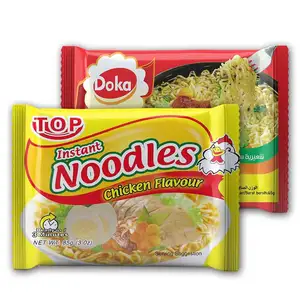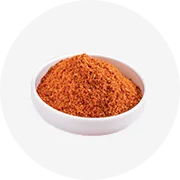

Small Scale Fried Instant Noodle Making Machine Fully Automatic Noodles Making Machine Popular And Hot Sale






















Halal noodles refer to noodles that adhere to Islamic dietary laws, specifically the guidelines for halal food consumption. Halal noodles are prepared and manufactured by these regulations, ensuring that all ingredients used in their production are permissible under Islamic dietary laws. The key aspects of ensuring noodles are halal involve the ingredients used and the production process. The ingredients must not contain any forbidden substances or derivatives, such as pork or alcohol, and should be sourced from halal-certified suppliers. Additionally, the production facility must adhere to strict cleanliness and hygiene standards to avoid any contamination with non-halal ingredients or substances during processing and packaging.
Halal noodles encompass a diverse array of noodle varieties, each offering unique textures and flavors, all adhering to Islamic dietary regulations. Instant noodles, a ubiquitous and convenient choice, are a prevalent form of halal noodles. These noodles are pre-cooked, dried, and often packaged with seasoning, requiring only hot water for quick preparation. Their versatility and ease of preparation make them a popular choice for quick meals among consumers adhering to halal dietary guidelines.
Ramen noodles, originating from Japanese cuisine, are another form of halal noodles gaining popularity worldwide. Typically made from wheat flour, these noodles have a chewy texture and are often served in a savory broth with various toppings. With halal-certified options available, ramen noodles cater to Muslim consumers seeking this beloved dish while adhering to their dietary requirements. Additionally, udon noodles, a thick and chewy wheat noodle, and vermicelli noodles, a thin rice noodle popular in Asian cuisines, are also available in halal-certified forms, offering diverse options for culinary creations that align with Islamic dietary laws. These varied forms of halal noodles cater to a wide range of culinary preferences, allowing individuals following halal dietary guidelines to enjoy a diverse selection of noodle dishes.
Halal noodles play a central role in many dishes across global cuisines, showcasing their versatility and adaptability in various culinary creations. Spicy halal noodles, such as dishes like Singaporean mee goreng or Malaysian curry laksa, exemplify the fusion of flavors and spices with halal-certified noodles, offering a delightful balance of heat and savory goodness. These dishes often feature a blend of aromatic spices, vegetables, proteins like chicken or beef, and halal-certified noodles, creating a satisfying and flavorful meal for those adhering to Islamic dietary laws.
Korean cuisine also boasts delicious Korean halal noodle dishes, with options like Japchae, a Korean stir-fried noodle dish typically made with sweet potato starch noodles and various vegetables and proteins. These dishes showcase the adaptability of halal-certified noodles, integrating them seamlessly into traditional Korean recipes, and ensuring they align with the dietary requirements of Muslim consumers. These diverse dishes highlight the incorporation of halal noodles into a wide range of cuisines, allowing individuals to explore global flavors while adhering to their religious dietary guidelines.